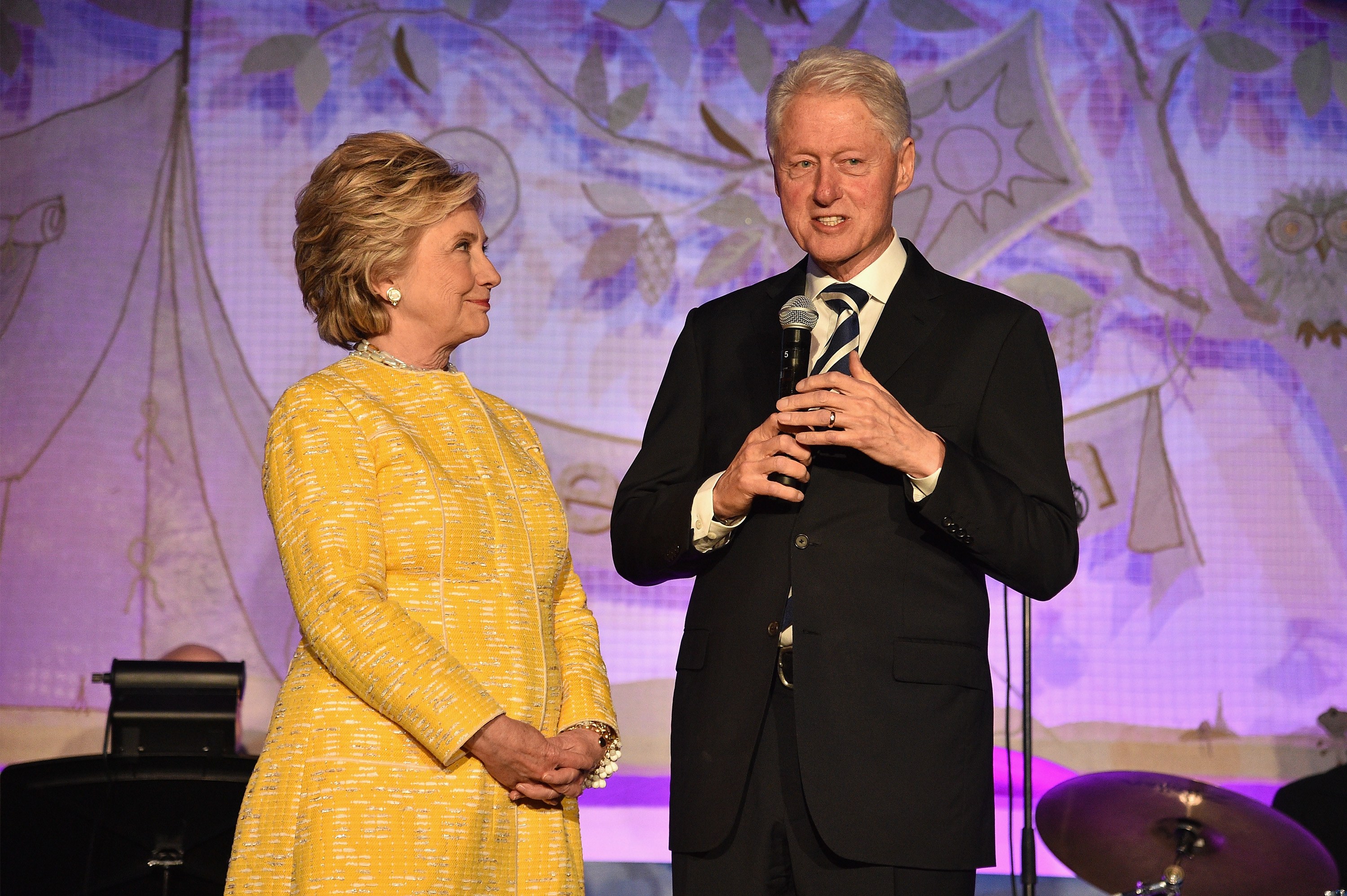Hillary Clinton Says Her Husband's Affair with Monica Lewinsky Wasn't an 'Abuse of Power'

In the year since the Harvey Weinstein story broke and the #MeToo movement took center stage, many women (and men) have spent time reflecting on events of the past and how they might be perceived if they happened today. We saw this most recently during the Brett Kavanaugh nomination hearings, when Christine Blasey Ford’s testimony drew obvious comparisons to Anita Hill‘s during the Clarence Thomas hearings back in 1991.
Another public figure who has been subjected to this reassessment is former President Bill Clinton, who, when asked about #MeToo this summer, said he doesn’t “agree with everything.” Now his wife, Hillary Clinton, has weighed in on the matter. On CBS’ Sunday Morning, Clinton was asked about her husband’s relationship with former White House intern, Monica Lewinsky, more than 20 years ago, and whether it should have led to his resignation. Her answer: “Absolutely not.”
But it is the follow-up to the initial question that many see as problematic.
“It wasn’t an abuse of power?” asks CBS News’ Tony Dokoupil. “No,” says Clinton. Dokoupil continues, “There are people who look at the incidents of the 90s and they say, ‘A president of the United States cannot have a consensual relationship with an intern; the power imbalance is too great.'” Clinton interjects, “Who was an adult.”
“Let me ask you this,” she continues, “where’s the investigation of the current incumbent, against whom numerous allegations have been made, and which he dismisses, denies, and ridicules? So, there was an investigation [of President Clinton], and it, as I believe, came out in the right place.”
Let’s break this down: She is indeed correct about the allegations against President Donald Trump, but what Clinton says in defense of her husband is so deeply disappointing for those who understand how power works. To argue that because Lewinsky was an adult at the time there could be no power imbalance is just wrong and negates the workplace harassment experiences of women of every age.
It saddens me that the Clintons don’t seem to have evolved their points-of-view on the matter since the ’90s, as so many others have in the wake of #MeToo. In that June 2018 interview where Bill Clinton said he had questions about the movement, he also took a defensive (and questionable) stand. “Nobody believes that I got out of that for free. I left the White House $16 million in debt,” he said. “But you typically have ignored gaping facts in describing this. And I bet you don’t even know that. This was litigated 20 years ago, and two thirds of the American people sided with me.”
Lewinsky herself has done some re-thinking about the relationship. “Now, at 44, I’m beginning (just beginning) to consider the implications of the power differentials that were so vast between a president and a White House intern,” she wrote in a Vanity Fair essay in February. “I’m beginning to entertain the notion that in such a circumstance the idea of consent might well be rendered moot. (Although power imbalances—and the ability to abuse them—do exist even when the sex has been consensual.)”
“He was my boss. He was the most powerful man on the planet,” she continued. “He was 27 years my senior, with enough life experience to know better. He was, at the time, at the pinnacle of his career, while I was in my first job out of college.”
Social media users quickly called Clinton out for her failure to recognize the power dynamic between Lewinsky and her husband.
We cannot make necessary progress if we refuse to look at our collective past and learn from it—as hard as it may be to face. That’s true for everyone, even Hillary Clinton.
